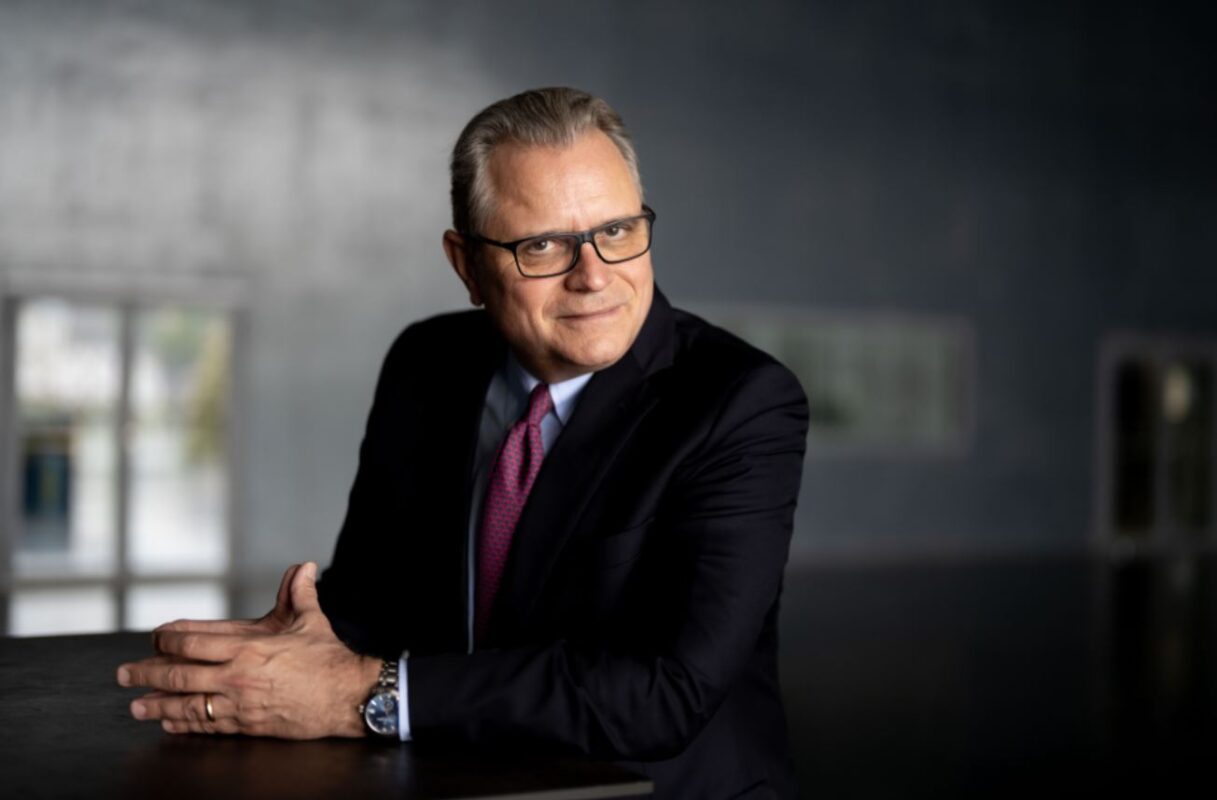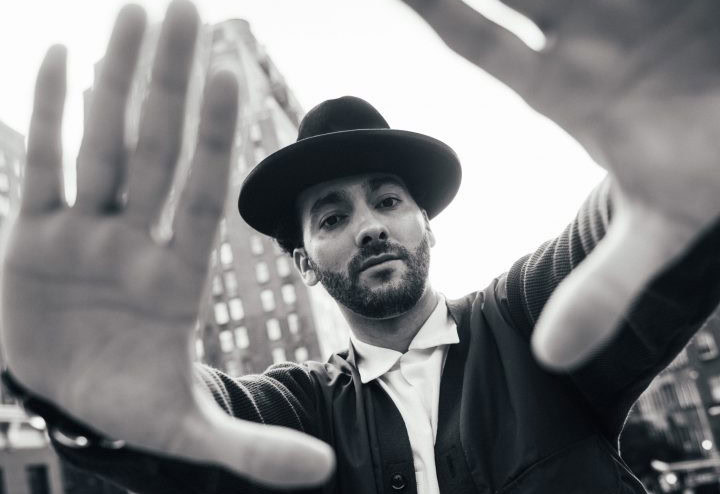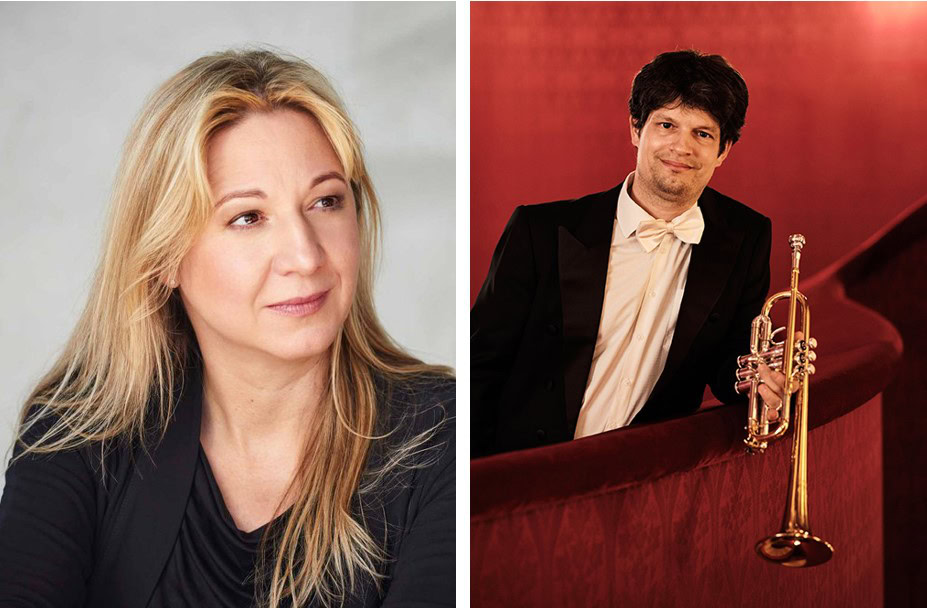The Walter Furrer revival
Over the last six years, a number of works have been performed, CDs and a master's thesis have been produced. An article in the "Schweizer Musikzeitung" was the starting signal for the renewed interest in the composer, driven by Beatrice Wolf-Furrer.

In June 2012, out of a sense of duty, I donated the musical estate of my father, the Swiss composer Walter Furrer (1902-1978), to the Burgerbibliothek Bern as part of a donation agreement. His musical production had brought him occasional recognition during his lifetime, but never a breakthrough in the true sense of the word. Only two years after the donation, the task of reviving his works came to me as a matter of course.
The big question: How to start? I had been in possession of a copy of the autobiographical essay for some time My student years in Paris. I read it carefully for the first time, realized that it was well written and with its very own touch of Furrerian humor; what could be more obvious than to dedicate it to the Swiss Music Newspaper to offer! This led to the publication of a particularly tasty excerpt in November 2014. The essay as a whole was posted online. And it even brought me a few reactions from readers who were still familiar with Walter Furrer.
The Swiss Music Newspaper continued to support my work by publishing the interviews I conducted in 2015 with the following people who still knew Walter Furrer:
- with the organist Heinz-Roland Schneeberger (1928-2016), who was particularly involved in organ composition Le chiese di Assisi. Nove visioni musicali per organo had rendered outstanding services;
- with the Swiss composer Klaus Cornell, whom I met in Constance;
- with the Music expert Walter Kläy, who, like Klaus Cornell, was a young colleague of Walter Furrer's at Radio Studio Bern;
- with the widow of the Swiss clarinettist Antony Morf. Walter Furrer had dedicated his small composition Nahtegal, guot vogellîn dedicated.
A first step had been taken. What next?
"Turn to the universities of the arts," friends and acquaintances advised me. I did this throughout Switzerland - without success. But I was given the valuable tip to get in touch with the Bern Chamber Orchestra. That's how I got to know Beat Sieber, who was its managing director at the time (he is now the director of the Kammerphilharmonie Graubünden). After a short time - he had already had a look around the Burgerbibliothek - he informed me that the Bern Chamber Orchestra would be performing Walter Furrer's vocal cycle Six Turkish Songs for baritone and chamber orchestra (premiere in 1971 at the Centre de musique contemporaine et de premières auditions, Geneva) into his themed concerto Alla Turca.
The concert took place on May 21, 2017 at the Bern Conservatory under the direction of Philippe Bach, with the songs performed by mezzo-soprano Claude Eichenberger; the entire performance was recorded by Radio SRF 2 Kultur and broadcast on July 6, 2017.
The cycle Turkish songs was also lucky in the following period: on March 15, 2019, it was heard again in an anniversary concert of the Thurgau Chamber Orchestra in Kreuzlingen, conducted by the Swiss conductor Tobias Engeli, who works mainly in Germany. Once again, a singer, Barbara Hensinger, interpreted the songs. There is a web review of both the Bern and Kreuzlingen premieres by Biel music expert Daniel Andres (see homepage www.walter-furrer.ch).
The Förderverein Komponist Walter Furrer was founded back in 2015 with a minimal line-up of three people: Beat Sieber, Patrick Freudiger and myself. Nothing has changed in this form to date. Beat Sieber set up the aforementioned website, which he has managed ever since.
Shortly afterwards, I was visited by the clarinettist Andreas Ramseier, who works at the Burgdorf music school, among others; he also warmed to Walter Furrer's music and helped me to organize a first vocal concert, in which he himself was joined by the artists Barbara Hensinger (alto), Yvonne Friedli (soprano) and Barbara Jost (oboe) as well as the pianist Andres Joho. It was performed three times in Switzerland and twice in Germany from 2017 onwards; this also provided an opportunity to draw attention to the composer for the first time in Plauen in the Vogtland region, where he was born.
Musicology Institute of the University of Bern
In December 2016, Cristina Urchueguía held the edition philology seminar "Preserving the Swiss composer Walter Furrer from oblivion" at the Institute of Musicology at the University of Bern; two further works emerged from this seminar:
- Walter Furrer's small composition created in the seventies of the 20th century Nahtegal, guot vogellîn for chamber choir, viola, guitar, recorder and tambourine (text: Heinrich von Stretelingen, 1258-1294) was arranged for lute, flute, accordion and soprano by the lutenist Irina Döring and performed in this form five times in Switzerland by the Ensemble Lumières médiévales.
- Another participant, Tamara Ackermann, picked out the so-called "workers' songs" from the rich choral oeuvre, which would later become the subject of her Master's thesis.
2018 - the 40th anniversary of Walter Furrer's death - was a particularly rich year:
- On March 17 and 18, the Zürcher Sing-Akademie under the direction of Florian Helgath performed Walter Furrer's composition, which was commissioned by the Berner Stadttheater and printed by the Zurich music publisher Hug Three religious choruses from Faust I (Goethe; Mater dolorosa, Dies irae, Chorus ad diem festi paschae). The production, which was staged on February 22, 1944 by Faust I premiered choirs were not given enough attention at the time and have only now received their full appreciation (see homepage).
- On June 19/20, 2018, there was a studio recording on SRF 2 Kultur, which I owe to the music producer Norbert Graf and the fact that Beat Lüthi, then head of the Bern-based music publisher Müller & Schade AG, agreed to a co-production. Parts from the aforementioned first vocal concerto were recorded, as well as Lieschen's dirge from Walter Furrer's opera, which premiered at the Stadttheater Bern in 1947 The faun (Performers: Yvonne Friedli, Andres Joho).
The concert ended with a recording of the above choirs from Faust Iwhich the Zürcher Sing-Akademie generously made available for this commemorative CD. It thus provides an insight into three key areas of Furrer's oeuvre: lieder, opera and choral composition. It was released in late fall 2018 - together with the book Walter Furrer (1902-1978), an unjustly forgotten Swiss composer. A biographical outline by Beatrice Wolf-Furrer - published by Müller & Schade AG. In the same year, SRF 2 Kultur broadcast part of the vocal cycles under the title "Unjustly forgotten?", together with works by other, equally forgotten composers.
- At the end of August, Tamara Ackermann submitted her Master's thesis at the University of Basel. Vision - The compositional ideas of the Swiss Workers' Singers' Association using the example of the workers' songs by Walter Furrer (1902-1978) before. These choruses were requested by the Swiss Workers' Singers' Association at the time and most of them were also published. The work will be printed by the Musikforschende Gesellschaft der Schweiz in 2021.
- The first resounding success in Germany took place on October 10 and 12, 2018 in Reichenbach (Neuberinhaus) and Greiz (Stadthalle): The Vogtland Philharmonic Orchestra under the direction of Dorian Keilhack performed Walter Furrer's Scherzo drolatiquethe second opera, written in 1949/52 and never performed before Dwarf nose (based on the fairy tale by Wilhelm Hauff): it is a concert arrangement of the Kitchen Boy Ballet from the 4th picture, created in 1955, which was broadcast several times by Swiss radio stations in the 20th century and was also performed publicly in Aachen in 1973.
- On October 12, 2018 - at the same time as the concert by the Vogtland Philharmonic Orchestra in Greiz - the vocal concert was performed for the fifth and final time at the Schwartzsche Villa in Berlin-Steglitz.
But there is also a lot to report about Walter Furrer in 2019 and even 2020. First of all, a well-attended soiree was held at the Burgerbibliothek Bern on June 6, 2019: In the first part, I reported on the activities to date, in the second Tamara Ackermann explained the key points of her Master's thesis and in the third Andreas Barblan provided information about Furrer's archives using examples.
In the first half of 2019, I got to know the organist Matthias Wamser. He works as an organist mainly at St. Anthony's Church in Basel, conducts several choirs, publishes musicological texts and actively promotes forgotten composers of the 19th and 20th centuries. Walter Furrer's sacred compositions - there are, if one counts Three religious choruses from Faust I not among them, only three, which nevertheless occupy a significant place in his oeuvre - appealed to him spontaneously, although initially it was only the 1973 Le chiese di Assisi. Nove visioni musicali per organo went. D
hrough repeated visits to the Umbrian town of Assisi, the composer became increasingly familiar with its nine churches and was increasingly captivated by Franciscan spirituality. On October 13, 2019, 46 years after the world premiere in the Cathédrale de Lausanne, the Chiese in St. Anthony's Church in Basel: Matthias Wamser included it in the concert "Organ music on the way to Francis of Assisi" with works by César Franck, Charles Tournemire, Franz Liszt and Hermann Suter. On July 9, 2020, he played it again as part of the Plauen Organ Summer in the monumental St. Johanniskirche, directed by Heiko Brosig.
In the meantime, Matthias Wamser had also worked on the two psalms, and so the three sacred works were recorded in Basel's Antoniuskirche on November 22, 2020: the Chiese di Assisithe Psalm 102 and 27 for alto, oboe and organ and of Psalm 142 for soprano and organ (Performers: Barbara Hensinger, alto; Chelsea Zurflüh, soprano; Matthias Arter, oboe; Matthias Wamser, organ; Gerald Hahnefeld, sound recording, editing and mastering; Beatrice Wolf-Furrer, production & copyright). The CD was released at the end of January 2021 and can be ordered from me via marnac@besonet.ch for the price of 20 francs.
Concerts
In 2019, I organized a second vocal concert, this time independently. It included four cycles (Sechs türkische Lieder für Bariton und Klavier, Sieben Lieder für Sopran und Klavier, Six fables de Lafontaine pour baryton et piano, Sources du vent. Sept mélodies pour soprano et piano), three of which are originally accompanied by chamber orchestra, individual instruments or large orchestra and only one of which was originally written for voice and piano. However, the composer arranged piano versions for all three with small halls in mind, in order to make them known more quickly. The two cycles based on texts by French authors were important to me so that I could point out his affinity with the French language and culture: Walter Furrer's two years of counterpoint lessons with Nadia Boulanger at the Ecole normale de musique in Paris in the 1920s determined the development of his compositional style once and for all.
This second vocal concert premiered on October 6 in Basel's Schmiedensaal (performers: Delia Haag, soprano; Benjamin Widmer, baritone; Tomasz Domanski, piano). This was followed by further performances on November 6, 2019 in Biel's Farelsaal (recording by the Gerald Hahnefeld recording studio) and on March 15, 2020 in Kirchlindach (Reformed Church; Walter Furrer is buried in the cemetery there). The soprano part has since been taken over by Chelsea Zurflüh, a young singer from Biel.
And then corona hit us all, and the next two concerts on March 22 and May 26, 2020 were banned. I spent weeks negotiating new dates and venues - for nothing! Until I finally managed to "complete" the two events under strict conditions (limited audience numbers, compulsory masks) on November 1 at the Langenthaler Bären and on December 5, 2020 at the Bern Conservatory. With flying colors, by the way! The hand-picked specialist audience thanked the artistic crew.
The year 2021 will primarily be dedicated to the following projects:
- the aforementioned publication of Tamara Ackermann's master's thesis;
- the production of advertising material for the opera Dwarf nose. At the same time, a concert performance of a cross-section of the opera (with piano accompaniment) is being rehearsed. The purpose of both is to interest theaters in Switzerland and Germany in the work. It is being considered to perform the aforementioned performance as a dramatic vocal concert if possible;
- the publication of a supplementary volume to my Biographical outline. This publication will only contain source texts such as Walter Furrer's statements about his compositions, his unabridged autobiographical essay My student years in Parisbut also correspondence, insofar as it concerns the compositional work, etc. The Bern-based music publisher Müller & Schade AG - now managed by Urs Ruprecht - publishes the volume.








